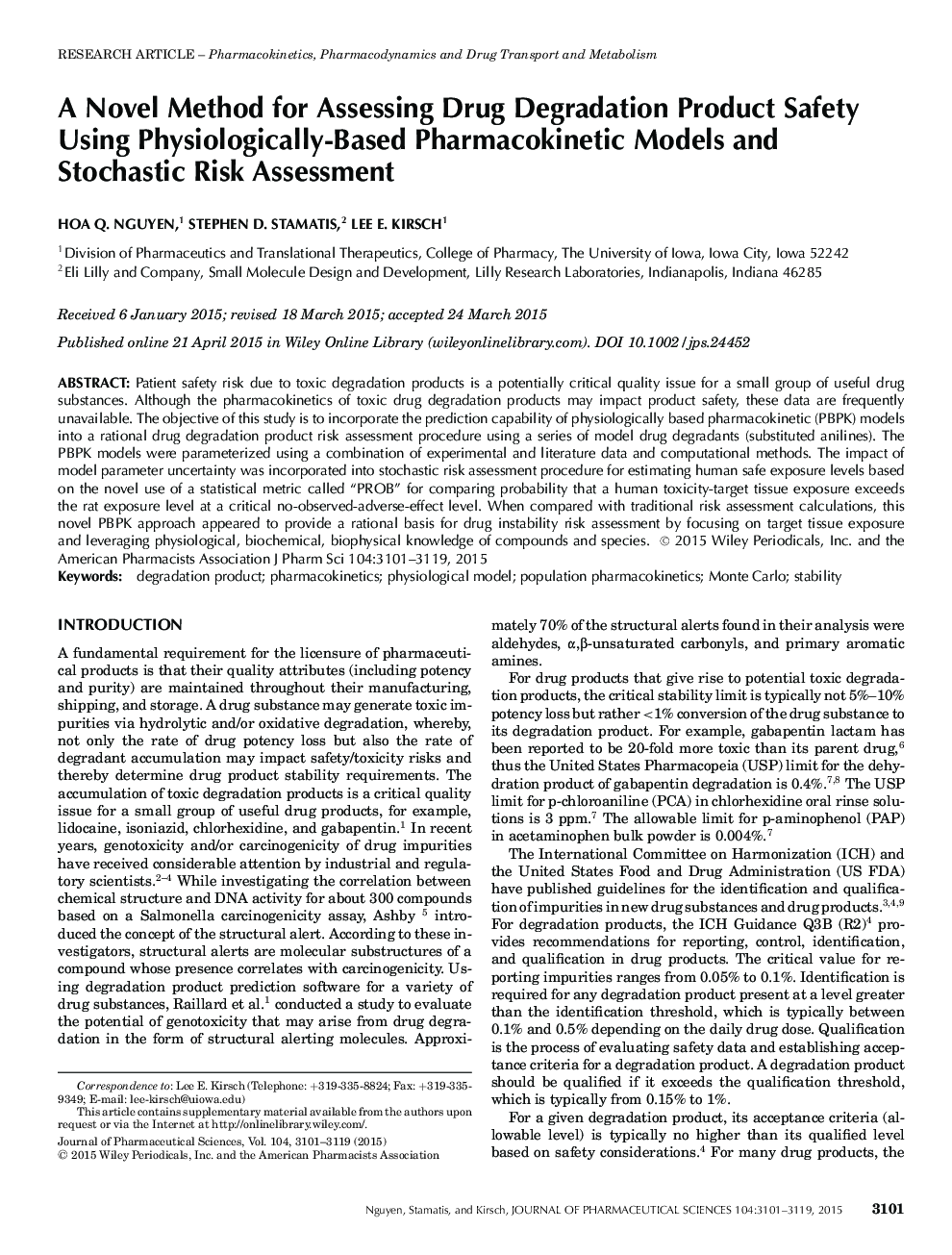| کد مقاله | کد نشریه | سال انتشار | مقاله انگلیسی | نسخه تمام متن |
|---|---|---|---|---|
| 2484413 | 1114309 | 2015 | 19 صفحه PDF | دانلود رایگان |
ABSTRACT:Patient safety risk due to toxic degradation products is a potentially critical quality issue for a small group of useful drug substances. Although the pharmacokinetics of toxic drug degradation products may impact product safety, these data are frequently unavailable. The objective of this study is to incorporate the prediction capability of physiologically based pharmacokinetic (PBPK) models into a rational drug degradation product risk assessment procedure using a series of model drug degradants (substituted anilines). The PBPK models were parameterized using a combination of experimental and literature data and computational methods. The impact of model parameter uncertainty was incorporated into stochastic risk assessment procedure for estimating human safe exposure levels based on the novel use of a statistical metric called “PROB” for comparing probability that a human toxicity-target tissue exposure exceeds the rat exposure level at a critical no-observed-adverse-effect level. When compared with traditional risk assessment calculations, this novel PBPK approach appeared to provide a rational basis for drug instability risk assessment by focusing on target tissue exposure and leveraging physiological, biochemical, biophysical knowledge of compounds and species. © 2015 Wiley Periodicals, Inc. and the American Pharmacists Association.
Journal: Journal of Pharmaceutical Sciences - Volume 104, Issue 9, September 2015, Pages 3101–3119
